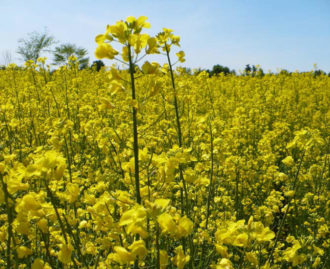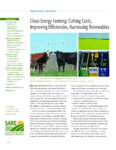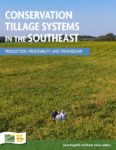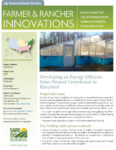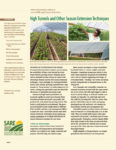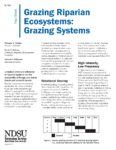High and fluctuating energy costs have caused economic challenges for many of the country’s farmers and ranchers. For this reason, more producers are seeking alternative energy sources to improve their energy independence and revenue. Vermont farmer Roger Rainville, for example, learned to produce biodiesel for under $2 per gallon. His savings and profit margin will be greater as energy and fuel prices rise.
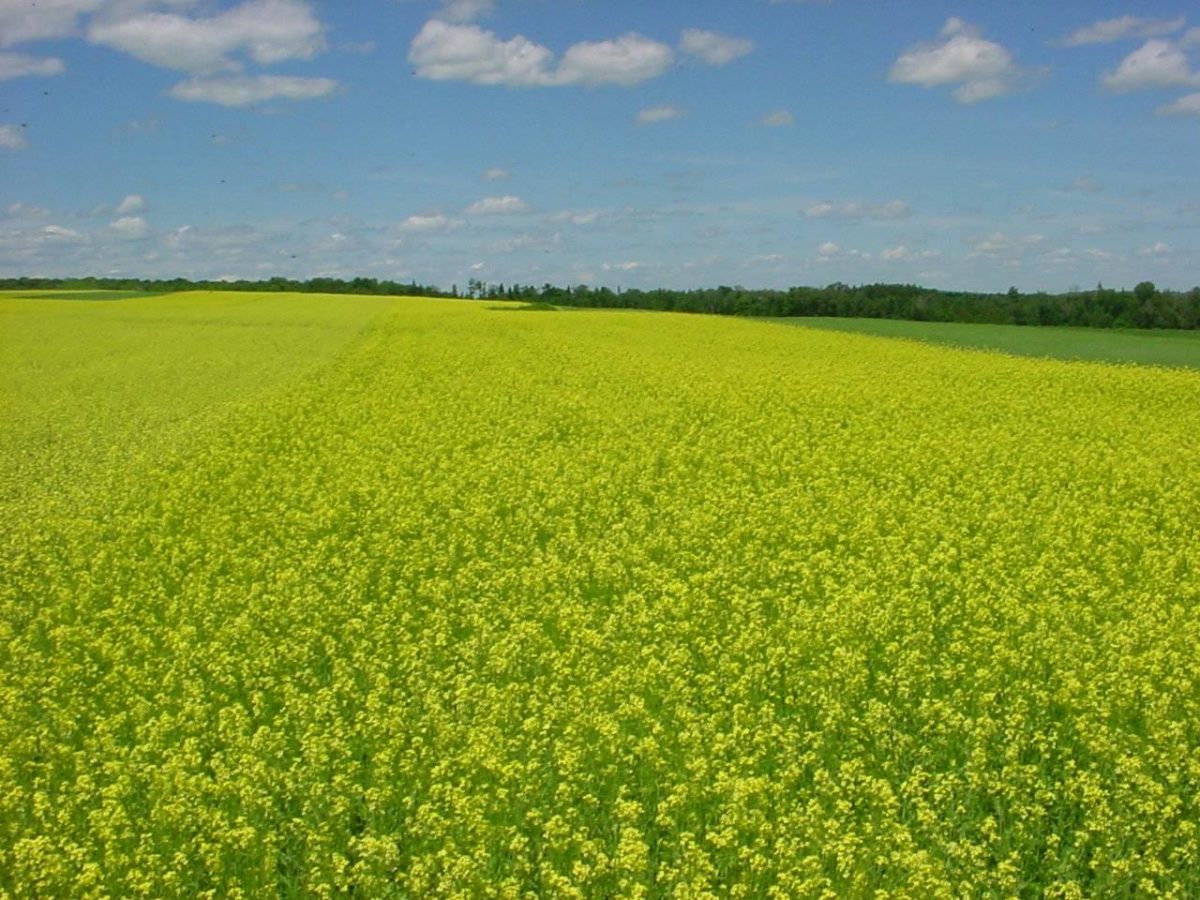
As more innovative farmers seek ways to reduce energy use and increase agricultural efficiency, they are turning to renewable energy sources and sustainably produced biofuels. The resources on this page can help you pursue sustainable energy strategies on your farm or ranch, realizing reduced costs and increased profits.
Around the country, farmers and ranchers are looking to their land and operations as a means to produce renewable energy in various forms, including wind power, solar power, anaerobic digestion and biomass energy. The use of such sustainable energy in agriculture allows farmers to not only reduce costs but also to generate long-term sources of income.
Growing Biofuel Crops
Biofuels replace fossil fuels by using recently harvested plants; oilseed production for biofuels typically involves such plants as camelina, canola and sunflowers. Growing biofuel crops is considered renewable because the plants can be replenished quickly and easily. As side benefits, producers have a good source of feed production and can add oilseeds to multi-year crop rotations.
Common plant feedstocks include oilseeds (such as camelina, canola and sunflowers), sugar crops and grasses. Biomass pellets can be produced from perennial grasses, such as switchgrass.
Roger Rainville is ahead of the curve when it comes to reducing costs by growing biofuel crops on his farm near Alburgh, Vt. As shown in this video, Rainville has developed expertise in producing, harvesting, processing and storing canola (and sunflower) oil, as well as the technical aspects of converting that oil into biofuel for use on the farm.
Producing Biomass for Energy: What You Need to Know
These are some important questions to think about as you consider biomass-based energy:
- What crops can you plant with the equipment, soil type and knowledge base you already have?
- What is the season of crop you are considering relative to season of energy demand?
- What kind of storage capacity do you have for the biomass?
- How much land can you safely dedicate to new and experimental crops?
- Can you use perennial and diverse cropping systems for bioenergy feedstocks?
- Do you have underused or marginal land that could be used for woody biomass or grass mixtures?
- Have you calculated the inputs needed for biomass crops? Energy crops should produce more energy than they require to grow and process.
- How can you integrate sustainable energy into a whole-farm plan?
(Taken from the SARE bulletin Clean Energy Farming.)
Creating Biofuel
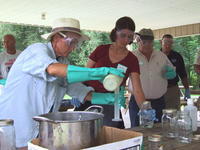
Biofuel energy can be created as biodiesel or ethanol, or converted from animal waste. Biodiesel is produced by combining vegetable oil or animal fat, alcohol and a catalyst, and it can be used in most diesel engines without any modifications. Ethanol can be produced from corn or fruit. For example, Dan West, who farms in Macon, Mo., turns excess apples, peaches, apricots, nectarines, plums and pears into ethanol. Using his ethanol to power his mower and tractor helps him be more self-sufficient.
Co-Products
Growing and processing biofuel crops such as camelina and other oilseeds produces both the oil and the meal. The oil can be used on farm or sold for a profit, and the meal can be used as a feed, reducing costs. This becomes a win-win for the producer.
Solar-Powered Agriculture

Solar-powered farms use this clean, renewable energy to augment or replace existing fossil fuel energy sources. Solar energy on farms can be used for heating water, buildings and barns, and for creating power to operate equipment.
For example, one Northeast farm has expanded their growing season with an active solar heating system. They now can grow greens throughout the winter, as well as tropical fruits.
Start with the basics and explore generating electricity from the sun, including the considerations you need to make before deciding to invest in a solar electricity system.
Wind Power for Farms

According to the U.S. Department of Energy, wind energy is the world’s fastest-growing energy technology. The wind’s force is converted into mechanical power or electricity. On-farm wind turbines can stand alone, be connected to the grid or be combined with farm solar power. Many producers use wind power for water pumps; others have “wind turbine farms” in addition to their crops or livestock. Large wind turbines typically use less than half an acre of land, and farmers can continue to plant crops and graze livestock right up to the base of the turbines.
New York farmer Raymond Luhrman describes how his family operates their community-supported agriculture operation from electricity produced right on site. Harnessing wind energy on-farm reduces emissions from fossil fuels and provides a cost savings.
Small wind turbines do not emit pollution and need no water. A small wind electric system will work for you if:
- There is enough wind where you live
- Tall towers are allowed in your neighborhood or rural area (or you live in flat terrain with no tall obstacles nearby)
- You have enough space
- You can determine how much electricity you need or want to produce
- You can interconnect with your utility service provider (assuming you have a grid-connection application)
- It works for you economically.
True sustainability in agriculture involves an effort toward reducing energy use. The energy alternatives highlighted here will help you improve your own energy efficiency while improving your bottom line!
Using solar or wind energy or producing biofuels from crop feedstocks and anaerobic digestion helps farmers achieve energy independence while improving profitability and reducing fossil fuel emissions. Dig deeper to find educational resources on the production and use of on-farm energy.
